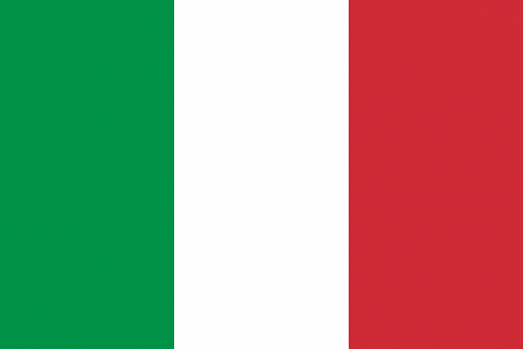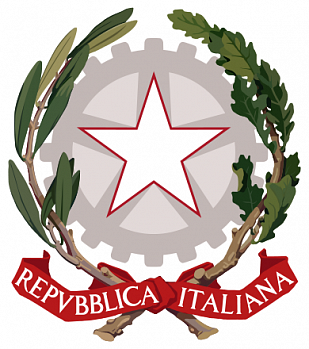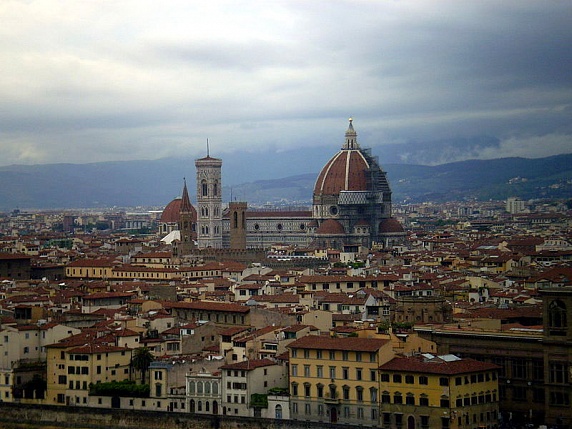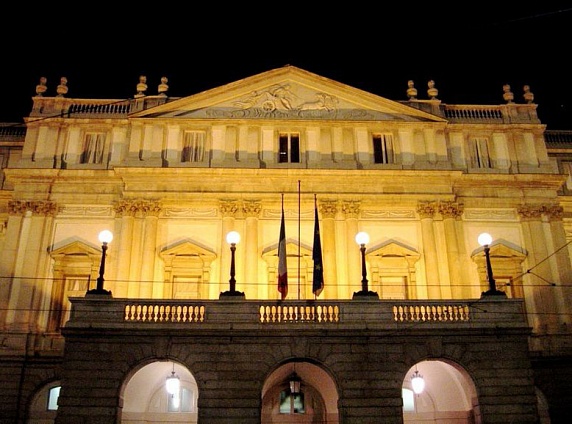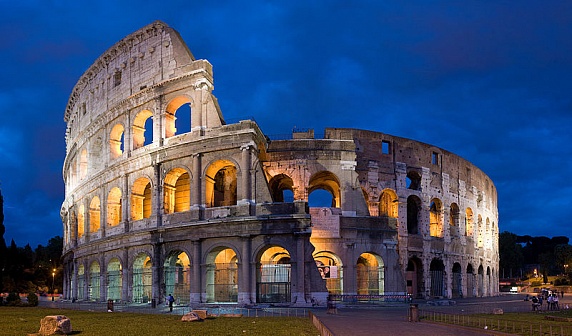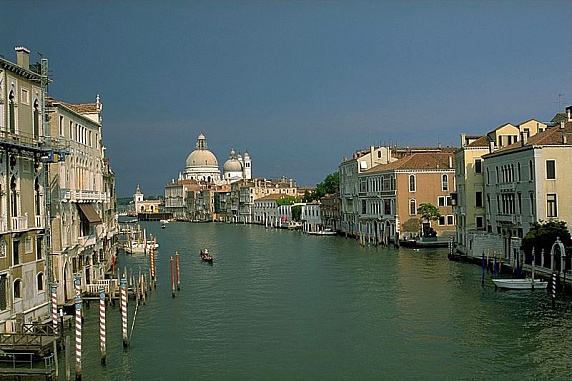 La République Italienne
La République Italienne
Foreign Minister Sergey Lavrov’s statement and answers to media questions at a joint news conference with Italian Minister of Foreign Affairs and International Cooperation Luigi Di Maio following talks in Rome, August 27, 2021
Ladies and gentlemen,
We have concluded talks in Rome. In the morning, I met with Prime Minister Mario Draghi. We have just finished detailed consultations with Minister of Foreign Affairs and International Cooperation Luigi Di Maio.
Italy is one of the leading countries, with which we are maintaining intensive trade, economic and investment cooperation. The pandemic has somewhat hampered relevant projects. Last year, trade was down. However, in the first half of this year, growth resumed, pushing trade up 30 percent. An important contribution to this is being made by the Russian-Italian Council on Economic, Industrial, Monetary and Financial Cooperation, which is headed, on behalf of Italy, by Luigi Di Maio and, on behalf of Russia, by Minister of Industry and Trade Denis Manturov.
We discussed the upcoming meetings at various levels. We were pleased that at the INNOPROM international exhibition in Yekaterinburg last July, Italy was the first European country to become our partner while Italian Minister of Economic Development Giancarlo Giorgetti headed the relevant delegation.
We praised the efforts of the Italian-Russian Chamber of Commerce and the Russian-Italian Committee of Entrepreneurs. We noted the positive outcome of the Italian business delegation’s participation in the St Petersburg International Economic Forum held in early June of this year, where several important commercial agreements were signed.
We appreciate and strive to expand cultural ties and educational exchanges. We encourage contacts between young people and learning the languages of our respective countries. We reviewed the progress of this year’s cross-Year of Museums. There are a number of joint projects, including functions in Italy dedicated to the 200th anniversary of Fyodor Dostoyevsky’s birth. We reiterated our support for the Civil Society Dialogue Forum.
My colleague mentioned the importance of combining efforts to combat the pandemic. On April 13, a Memorandum of Understanding on scientific cooperation and the exchange of materials and knowledge was signed by the Gamaleya National Research Centre of Epidemiology and Microbiology, the Russian Direct Investment Fund (RDIF) and the Lazzaro Spallanzani National Institute for Infectious Diseases. This agreement laid the foundations for long-term systematic cooperation. I am confident it will be beneficial for both sides.
We hope the quarantine restrictions will be gradually lifted and regulations governing mutual travel between our countries will be relaxed. The Russian Government decided to resume regular flights to Italy from June 28. This will allow Italian citizens to come to our country just like they did before.
With regard to the international agenda, we have reviewed the prospects for our cooperation on the terrorist- and crime-fighting tracks. We have created good bilateral mechanisms and well-established interaction channels on these matters within the UN framework.
In light of Italy’s G20 presidency, we covered in detail the functioning of that association, which reflects modern multipolar realities more adequately than smaller gatherings.
For obvious reasons, Afghanistan was a significant part of our discussions. We join in the condemnation of terrorist attacks and the condolences to the families of the victims. We see this as yet another confirmation of the need to step up assistance to the Afghans so that they are able, without further delay, to form an inclusive transitional government with the participation of all that country’s main political forces.
When we discuss the consequences of the current situation in a broader sense (the flows of migrants and refugees), our Western colleagues invariably want to combine efforts and to look for joint answers. Still, we need to learn the lessons of Iraq, Libya, and now Afghanistan. The attempts to impose one’s value system on someone else are highly explosive. I hope that three times is enough to get this conclusion firmly set in the minds of the politicians who are considering further actions in other countries.
It is critically important for us to safeguard our southern borders and the borders of our Central Asian allies. This matter has already been discussed at a CSTO online summit. The in-person CSTO summit will take place in mid-September. A SCO summit will follow the next day. There is no doubt that the risks emanating from Afghanistan, including the flows of illegal migrants that have been triggered, will be in the focus of our leaders’ discussion, as will the issues of helping the Afghans to ensure stability and the normal functioning of civil institutions in their country.
We talked over the situation in Europe, exchanging views on the actions by European Union leaders, who continue to stick to their destructive anti-Russia approach under the influence of a certain Russophobic group of EU member countries.
We discussed developments in Ukraine. We share the position that the Minsk Package of Measures has to be implemented in full. We used concrete examples to illustrate how the latest updates to Ukrainian law have essentially banned the Kiev authorities and other negotiators from doing what is required under the Minsk agreements. The situation is not easy. Hopefully, all our European colleagues who are sincerely interested in normalising the situation in Ukraine will manage to influence the Kiev authorities, as far as this matter is concerned.
We exchanged views on the situation in Libya and, in general, in the Mediterranean and North Africa. Quite a few processes are unfolding there, which one would be hard put to call positive. We have a common position on the settlement process in Libya. We are in favour of a gradual and synchronised withdrawal of all foreign forces from that country. We believe that providing assistance in holding general elections in the country is a priority objective.
My colleague touched on the issue of Alexey Navalny. Once again, I recommended that he or anybody else who is genuinely interested in sorting things out on this matter read the transcript of the Bundestag meeting at which the German Government answered deputies’ specific questions regarding the situation with the “poisoning” of this man. I do not have the slightest doubt that an unbiased person, after reading this transcript, is likely to arrive at an important conclusion that this problem has largely been classified for unknown reasons. We would also like to see things put straight.
The other day Kiev hosted an event called The Crimean Platform. In this connection – our Italian colleagues attended this event – we gave our appraisal of this futile undertaking, which is only exacerbating needless tensions while it is necessary to acknowledge the current reality. The reality is that the Republic of Crimea and the city of Sevastopol are part of the Russian Federation in keeping with the free expression of the will of the people living there.
We had an in-depth, meaningful and effective dialogue. I invited Mr Di Maio to make another visit to Russia. Hopefully, we will continue to maintain our dialogue, including on the issues that Russian President Vladimir Putin and Prime Minister of the Italian Republic Mario Draghi recently discussed during their telephone conversation.
Question (addressed to Luigi Di Maio, retranslated from Italian): What is the current situation in Afghanistan? We see Great Britain, Germany and France completing the withdrawal of their troops. When will the last Italian planes take off? Perhaps Russia should be involved in the effort? It continues to talk with the Taliban.
Sergey Lavrov (speaking after Luigi Di Maio): As you may be aware, for many years now we have been talking with all the parties to the conflict, including as part of the Moscow format, which includes all countries in the region that can have an influence on the situation, as well as the United States, China, India and Pakistan.
We maintained a dialogue with the Taliban as part of the extended Troika (Russia, the United States, China and Pakistan). It continued until recently in Doha, the capital of Qatar. The talks were dragged out. If nothing is achieved at the negotiating table, there’s a risk of a resumption of hostilities, which is what happened.
We were willing to support the agreements concluded between the United States and the Taliban. Unfortunately, they failed, and not only because of the Taliban’s position.
Question (addressed to Luigi Di Maio, retranslated from Italian): What are the preparations for the G20? How can Russia contribute?
Sergey Lavrov (speaking after Luigi Di Maio): We discussed preparations for the G20 today with Prime Minister Mario Draghi and Luigi Di Maio. We would like to understand how our Italian friends see the G20’s role. What “added value” they expect to see from engaging this mechanism. We were promised a concept paper that will clarify this matter.
Luigi Di Maio mentioned it was necessary to follow the five principles that he set out earlier. Fighting terrorism ranks fifth here, and the first four cover other matters. Our priorities will be slightly different. What matters to us is to ensure the security of our allies on Russia’s southern borders who have direct and open borders with Afghanistan.
The colleague highlighted the need for an inclusive format, which is important. I have mentioned five non-G20 Central Asian countries. Pakistan and Iran are not included, either, and without them, this discussion will not be complete. Our colleagues promised to think about how to come up with useful formats.
In the near future, we will take up Afghan affairs and the consequences of what happened there within the CSTO and the SCO. We will be ready to consider the Italian side’s specific proposals on the G20’s role.
Question: Recently, much has been said about the situation in Afghanistan. There is a certain consensus in the international community regarding the need for close cooperation to prevent Afghanistan from becoming a hotbed of global terrorism. Did you manage to come up with a joint approach during the talks? How does Russia plan to respond to new threats that arise literally every day (as in the case of the terrorist attack that took place yesterday)?
Sergey Lavrov: I just covered in detail our priorities in Afghanistan in this new situation. We will coordinate our actions primarily with our allies and strategic partners within the CSTO and the SCO. We will be ready to cooperate with all other countries which can, in good faith, contribute to normalising the situation in Afghanistan with an emphasis on ensuring security. Everything else will be secondary in our priorities.
Question: So, the citizens of San Marino, who were mostly vaccinated with the Russian Sputnik V vaccine, can safely and freely enter Italy. At the same time, Russian citizens who were vaccinated with the same vaccine cannot do so. Don’t you see this as a policy of double standards? Did you discuss under what circumstances tourist traffic between Russia and Italy can be resumed?
Sergey Lavrov: I asked Luigi Di Maio what makes the citizens of San Marino privileged as compared with Russians when both have been vaccinated with the same vaccine.
We hope that as soon as the issue of mutual recognition of the vaccines is settled, tourism will resume. Direct flights to Italy resumed on June 28. Italians arriving on these flights in Russia are completely free to be in our country in accordance with their itinerary.
The vast majority of EU countries are waiting for a go-ahead signal from the European Medicines Agency. As we are aware, the state regulator makes the final decision, just like Hungary did when it registered Sputnik V at the national level. There’s an agreement on mutual recognition of vaccines used in Russia and Hungary. The final decision is made by the national government. The European Union made statements that were not entirely constructive with regard to Russian and Chinese vaccines.
Question: In the lead up to your visit, the Italian news agency AGI said that “the Russian minister plans to ask his Italian colleague Luigi Di Maio for a constructive approach to the issue of sanctions.” Is there a grain of truth in this statement? Were the sanctions on Russia discussed today?
Sergey Lavrov: This is not true. We did not touch on this subject. There are many witnesses to that (our delegation and the Italian delegation). There’s nothing surprising about it. We made it clear many times that we were not going to discuss the sanctions with the countries that are weaponising sanctions in the absence of other methods to promote foreign policy. We will never ask anyone to give us some slack.
I came to Hungary, Austria and Italy for one simple reason – I got an invitation. We appreciate the opportunity to have a concrete, candid, and mutually beneficial and respectful dialogue.
